A quick guide to sodium, potassium, and sugar.
Article posted in:
Kidney Health
How they play a part in your health

This content is for educational purposes only. It is not intended to be a substitute for professional medical advice, diagnosis, or treatment. Always seek the advice of your physician or other qualified healthcare providers with any questions you may have regarding a medical condition. Never disregard professional medical advice or delay in seeking it because of something you have read on this Website.
Written By: Nicole Capirose
We know that ice cream and other guilty pleasure foods can be hard to walk away from! But did you know that the majority of oily foods and soft drinks contain minerals like salt, which impacts our sodium, potassium, and sugar levels? These guilty pleasure foods like the ones above are ok in monitored amounts. But, for someone with an underlying condition like low functioning kidneys or high blood sugar, eating these foods often have devastating consequences on our kidneys.
Salt intake is connected to your sodium levels which should be monitored daily if you have low functioning kidneys. Studies have shown that excess salt intake disables kidneys to retain essential proteins in the body thus allowing them to pass in urine (1). Experimental reports also indicate that Sodium directly impacts the kidneys and degrades its function (1). Excessive salt intake is especially dangerous to those with uncontrolled blood glucose levels and High Blood Pressure. Sodium is known to accelerate the damage on Kidneys, pushing it towards total organ failure (1). Salt intake can also make you prone to Osteoporosis; sodium weakens kidneys to the extent that they allow calcium proteins to flow into Urine (1).
Potassium, another nutrient that should be monitored plays part in controlling the many muscles in your body (2). Potassium is needed but not in excess. If the kidneys fail to filter extra potassium, it can result in muscle cramps, leading to serious heart issues (3). Although potassium is an essential mineral for your body, it should not go beyond a certain level in your body. You should discuss with your doctor the amounts of sodium and potassium your body can withstand before negative effects kick in.
Now let’s talk about where we can find these minerals in foods.
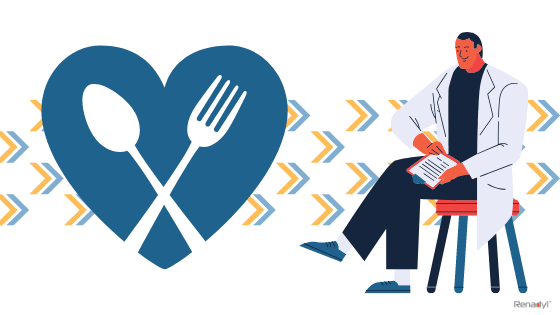
Salt/ Sodium
Salt is used frequently in baking and cooking and is added to increase the flavor of foods.
Here’s a list of foods that have high sodium content (4)
- Smoked, cured, salted or canned meat, fish or poultry including bacon, cold cuts, ham, frankfurters, sausage, sardines, caviar and anchovies
- Regular and processed cheese, cheese spreads and sauces
- Quick breads, self-rising flour, biscuit, pancake and waffle mixes
- Olives, pickles, sauerkraut, and other pickled vegetables
- Regular canned and dehydrated soup, broth and bouillon
Read and learn more here: https://www.ucsfhealth.org/education/guidelines-for-a-low-sodium-diet
Potassium
Potassium occurs mostly in Red meat, Eggs, and Fish. Although Potassium helps with immunity, if there is too much it can be harmful to kidney health.
Here’s a list of foods that have high potassium content (5)
- Baked Potato ( 1 potato) = 925 ML of Potassium
- Spinach ½ cup = 420 ML of Potassium
- Canned Clams 3oz = 535 ML of Potassium
- Banana = 425 ML of Potassium
- Dates (5) = 270 ML of Potassium
Read and learn more here about high potassium foods https://www.uofmhealth.org/health-library/abo9047
Read this article on Hyperkalemia AKA High Potassium https://kibowhope.com/high-potassium-hyperkalemia/
Sugar
Sugar occurs naturally in fruits, but is also used generously in baking both vegan and nonvegan desserts. But what we can guess you didn’t know is that there is actually a high amount of sugar naturally in dairy products!
Here’s a list of foods that have high sugar content (6)
- Low Fat Yogurt
- Spaghetti Sauce
- Granola
- Pre-made soup
- Canned baked beans
Read and learn more here about high sugar content in foods https://www.healthline.com/nutrition/18-surprising-foods-high-in-sugar#section19
Now that we know which foods we need to avoid, try to start consuming some of the following foods which research has shown to help keep kidneys healthy. These foods might even help people avoid the risk of some cancers and strengthen their count of good bacteria-which is vital for your gut health (7).
Include more fiber-rich foods like Wholegrain breakfast cereals; Fruits such as berries, pears, melons, oranges; peas, beans, pulses.
Looking to eat healthier or just have a better balanced diet? Read how here https://kibowhope.com/the-nuts-and-bolts-of-a-healthy-pre-dialysis-diet/
Do you have both low functioning kidneys and high blood sugar? Read here how you can improve your diet https://kibowhope.com/diabetes-and-chronic-kidney-disease-what-does-this-mean-for-your-diet/
Your main take away from this article
- You should be cautious of the foods you are eating by keeping track mainly of the 3 minerals we discussed!
- Remember to include foods that are fiber-rich and limiting unhealthy junk food. Looking for a great fiber product? Take a look at Kibow® Fortis.
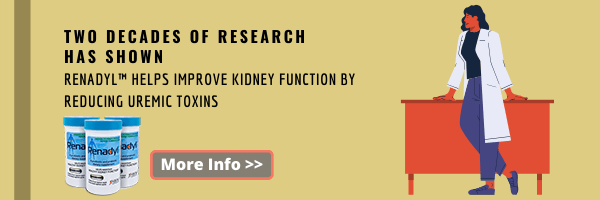

Works Cited
- Boero, R., Pignataro, A., & Quarello, F. (2002). Salt intake and kidney disease. Retrieved from https://www.ncbi.nlm.nih.gov/pubmed/12113591
- High potassium (hyperkalemia). (n.d.). Retrieved from http://www.kidneyfund.org/kidney-disease/chronic-kidney-disease-ckd/complications/high-potassium-hyperkalemia.html#complications-of-high-potassium
- Antonios, T. F., & MacGregor, G. A. (1995, March). Deleterious effects of salt intake other than effects on blood pressure. Retrieved from https://www.ncbi.nlm.nih.gov/pubmed/7554410
- UCSF Health. (2019, October 31). Guidelines for a Low Sodium Diet. Retrieved from https://www.ucsfhealth.org/education/guidelines-for-a-low-sodium-diet
- High-Potassium Foods. (n.d.). Retrieved from https://www.uofmhealth.org/health-library/abo9047
- West, H.(2016, July 16). 18 Food and Drinks That are Surprisingly High in Sugar. Retrieved from https://www.healthline.com/nutrition/18-surprising-foods-high-in-sugar#section19
- Conlon, M. A., & Bird, A. R. (2014, December 24). The impact of diet and lifestyle on gut microbiota and human health. Retrieved from https://www.ncbi.nlm.nih.gov/pmc/articles/PMC4303825/
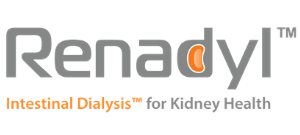

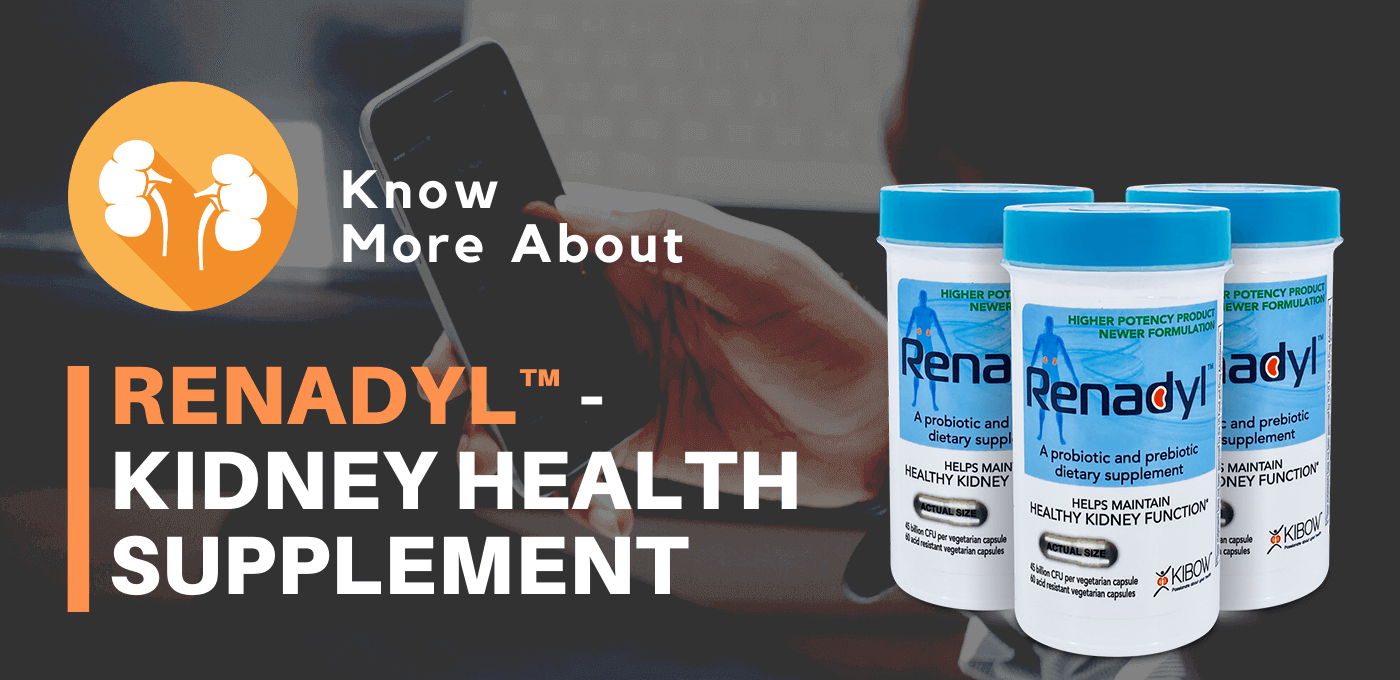
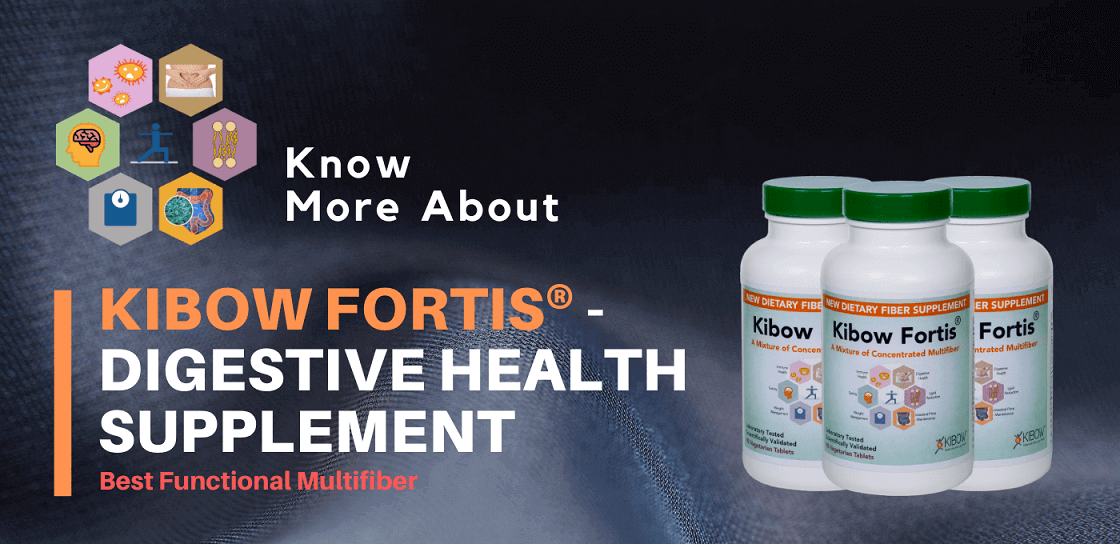
Comments
Comments are disabled for this post